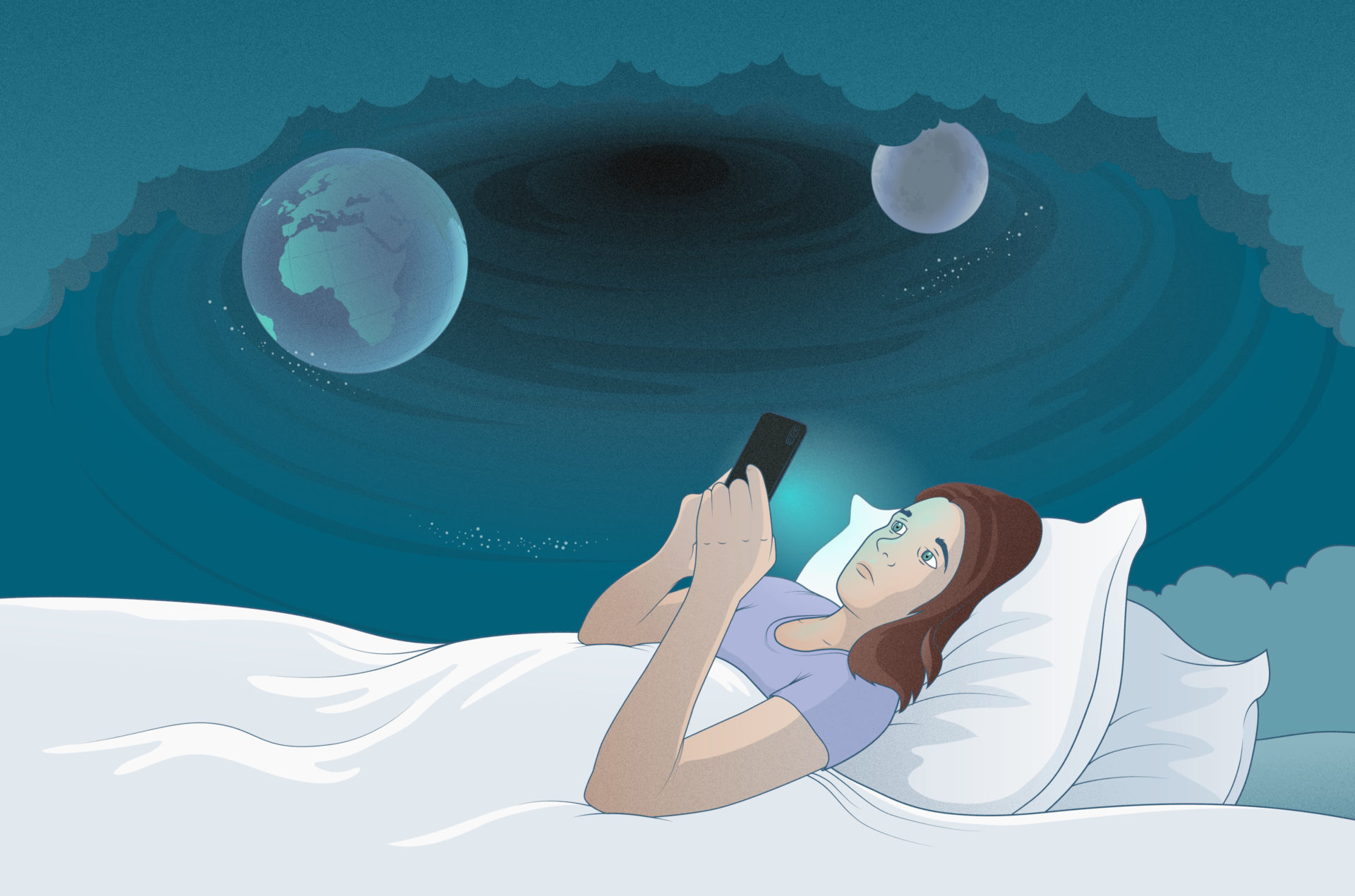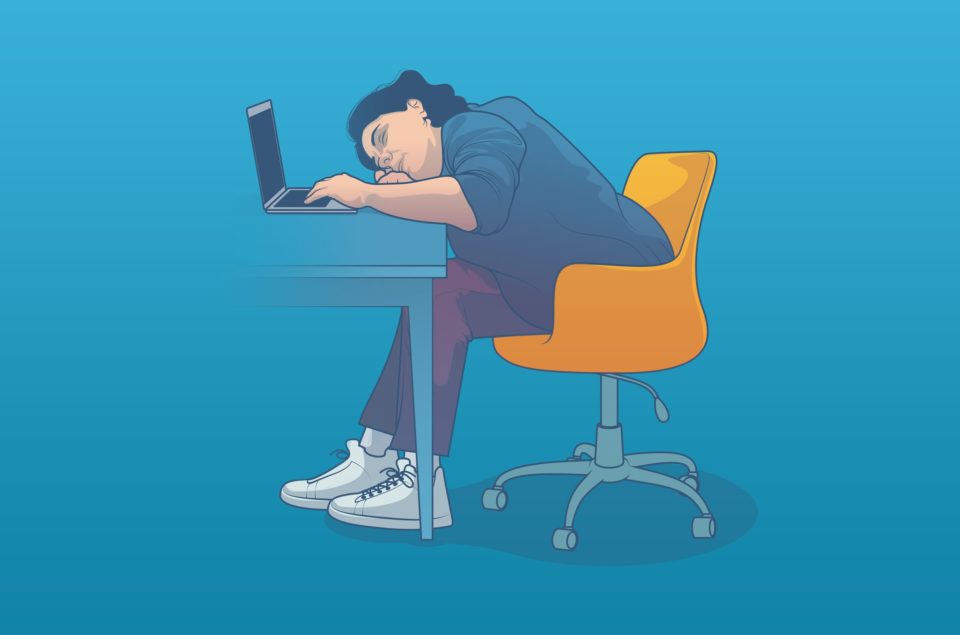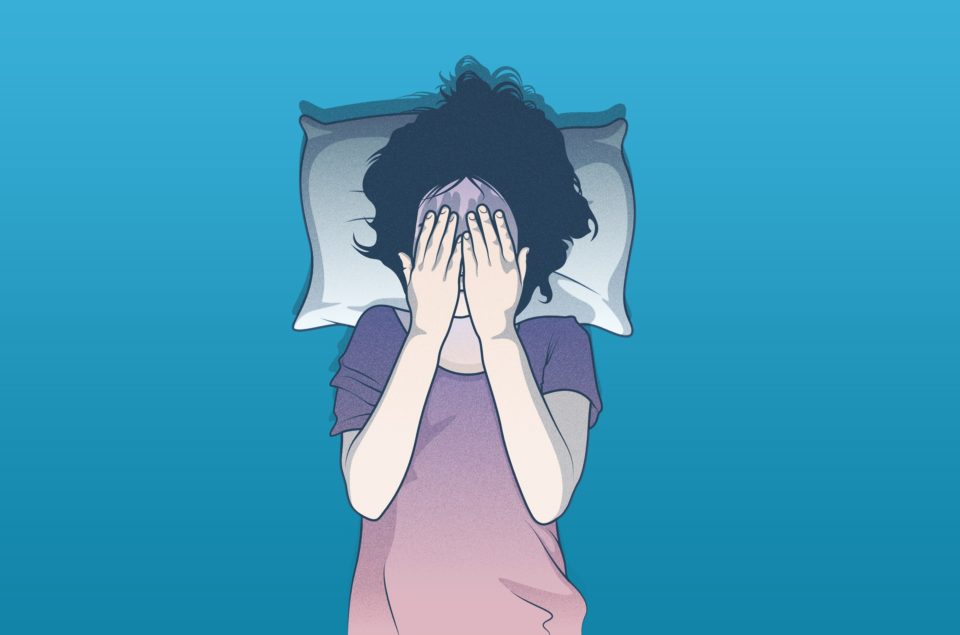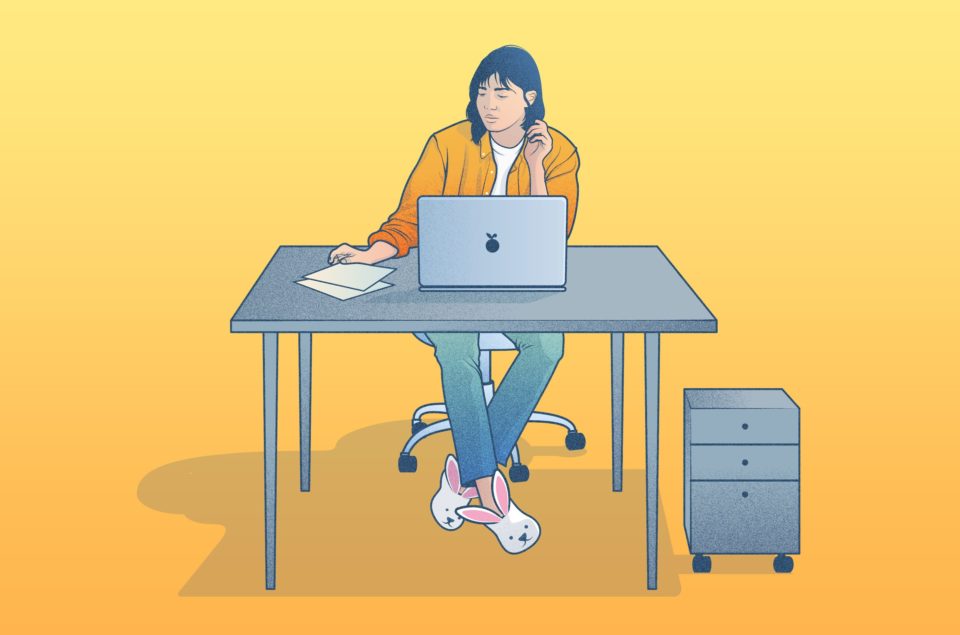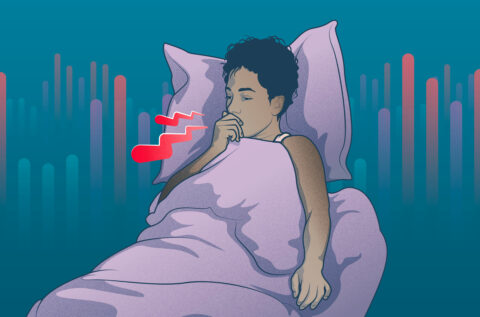When the world around us starts to feel less secure, our quality of sleep tends to deteriorate. Here, sleep researcher Frida Rångtell, PhD, talks about why our sleep is affected during times of trouble and what we can do to try to improve our chances of getting a good night’s rest.
It’s 3.30 a.m. and I’m wide awake. I’m not usually a morning person, but I haven’t slept past 5 a.m. for the last few weeks. There are a lot of things that are contributing to a general sense of anxiety right now. On top of all the news about the new coronavirus outbreak that has put many parts of the world on lockdown, there are layoffs and stock market sell-offs too. Businesses are struggling. And in many places, people are forbidden to go out. In the midst of all this, many of us can’t sleep or are sleeping badly. So, what can we do about it? I ask sleep researcher Frida Rångtell, PhD, for her perspective.
Is it common to sleep badly, in times like this? What issues are people likely to be dealing with?
Frida Rångtell: “It’s very common to have difficulties sleeping during periods of stress or worry. Problems may include, for example, difficulty trying to fall asleep, waking up at night or waking up very early.
“This is a stressful and uncertain time for many people, and stress and sleep aren’t good bedfellows. Stress makes the body more alert and aware of its surroundings, which helps us be prepared to react to any potential threats. We’re vulnerable to external threats when we’re asleep, so usually we need to feel a certain degree of safety to sleep well.
“Even in normal circumstances, people often wake up a bit during the night, sometimes without even noticing it. It may be that your brain is waking up every now and trying to decide: ‘Is it safe?’ This may be a good instinct from an evolutionary standpoint perhaps. But of course, it can be a real problem if you wake up several times a night and have trouble falling back to sleep again.
“Everyone has the occasional night of little or no sleep, or even periods of bad sleep. But if such sleep problems persist, and someone has trouble sleeping several days a week for a few months, this is a reason to seek professional help.”
So other than issues of sleeplessness and poor sleep quality, are there other sleep-related issues that people are likely to experience?
Frida Rångtell: “For people who are prone to sleepwalking, the risks of it happening can increase during times of stress and uncertainty. People may also be experiencing more nightmares. Research suggests that we process many of our difficult emotions during REM sleep, which is also a sleep stage when we may experience vivid and bizarre dreams. A U.S. dream study that followed people both before and after 9/11 found that people’s dreams changed after the events, even when they were just following them on the news. We can’t fully say what’s going on when someone is dreaming. But the research suggests that our dreams are impacted, sometimes even subconsciously, by what’s going on around us.”
So, not getting enough sleep can actually contribute to our sense of worry, because it means we can’t regulate or process those emotions as well?
Frida Rångtell: “Yes – that could absolutely be an issue!”
So, what can we do about it all?
Frida Rångtell: “We can’t just tell ourselves ‘I’m going to sleep better’ and expect to sleep through the night. What we can do though, is to try to improve our chances of sleeping well at night and improve the conditions required for that to happen. And what we do during the day and in the evening can make a big difference.
“There are a few simple things I would suggest. For one, try to go outdoors during the day to get some daylight. Or, if you are under lockdown, you can get some natural sunlight by, for example, sitting by a window. If you aren’t ill, find time to be physically active during the day, even if you’re indoors.
“Also, try to make sure that there is a noticeable difference between your daytime and night-time activities. During the day, you should try to be active – both physically and mentally. During the evening, try to do things that will make you relaxed and make sure your home is relatively dark and that you don’t have too many lights on.”
“It’s also good to allocate some time for reflection. When everything is dark and quiet and we’re trying to fall asleep, our mind can begin to race. To try to prevent that, schedule a bit of time earlier during the day for reflection. And perhaps take a moment to practice mindfulness or meditation, including some simple breathing exercises.
“If you want to keep up with the news and social media, try to find time for that during the day, but avoid it in the evening, if possible.
“Also, be kind to yourself. Some nights, we sleep badly and it’s ok. In that moment, there isn’t much you can do to force yourself to fall asleep, so one just has to accept the situation.
“But after recovering from a period of lost sleep, it’s a good idea to think through your sleep habits and evening routines and consider whether you want to make changes in your life that promote better sleep over the long run.”
Since the beginning of the current global crisis, social media use has shot up. Why is it so bad to check your news feed before bed?
“My advice right now is to try to limit social media and, if possible, to avoid checking the news in the evening, especially just before going to bed.
“You may feel like you are just logging in ‘quickly’ before bed. But you can never really control what you are exposed to in your news feed. There might be something very exciting or upsetting, or an opinion that makes you angry – none of which is good just before going to sleep.”
For people that aren’t having too much trouble sleeping – is it good to sleep a bit more then, to help yourself cope?
Frida Rångtell: “Sleep is good for the immune system and it’s nice to catch up on some much-needed rest if you often have a hectic life, but I wouldn’t overdo it either.
“Now that many of us have fewer activities scheduled in the evenings, I would take the opportunity to get a feel for your own sleep needs. In the evening, pay extra attention to when your body signals to you that you’re tired. (Be aware that some activities, such as watching an exciting TV-show, may instead mask these signals. To avoid this, you should choose evening activities that allow you to pick up on your own feelings of tiredness.) Focus more on your body than on the clock. You should feel sleepy when you go to bed. The body also likes regular hours and routines. So, my general advice is: think through your sleep needs and try to stick to a regular schedule.”
“Of course, if you’re ill, it may mean that you’re sleeping more – or less – than you usually do. But when you’re healthy, trying to sleep too much can even be counterproductive if it means that you find yourself lying in your bed trying unsuccessfully to sleep – your mind may instead start associating your bed with not sleeping. Napping a lot during the day or in the evening can also make it harder to fall asleep at night.”
